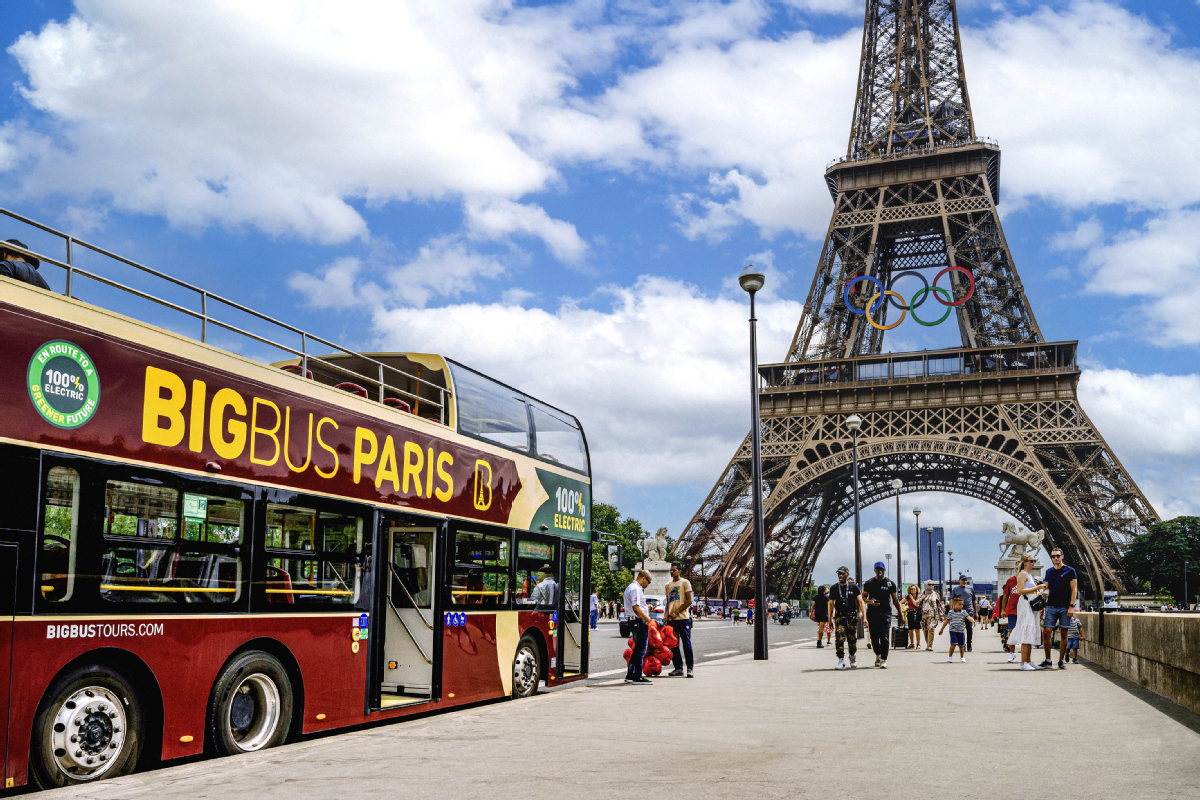Chinese electric buses zoom into Paris, world

A fleet of Chinese-made pure electric double-decker buses glide along the Seine River, zipping through the Arc de Triomphe and pulling up in front of the Eiffel Tower, making frequent announcements — "Dear passengers, welcome to Paris!" — in eight languages.
In fact, sports fans, coaches, members of visiting delegations, officials and others are using these pure electric vehicles to visit major tourist spots in Paris, venue of the 2024 Summer Olympics, which has been unprecedented in terms of its "green" quotient.
As the EVs offer pollution-free, experience-rich rides for just 40 euros ($43), many tourists are eagerly waiting to hop on to these buses for sightseeing tours.
Developed independently by Chinese automaker Anhui Ankai Automobile Co Ltd, this is the world's first pure electric double-decker open-top sightseeing bus. It joins other Chinese new energy vehicles that are making the Olympic venues environmentally friendly.

Between the Olympic Village and the sports training centers, there are K9 electric buses from BYD, the first time that the leading Chinese EV manufacturer has provided electric buses for the Olympics.
These specially customized electric buses have a range of over 400 kilometers each and use advanced pure electric drive technology.
In addition to the electric buses, BYD has also prepared hundreds of autonomous vehicles for transportation within the Olympic Village. Such self-driving vehicles are equipped with top-notch sensors and AI systems, and boast functions such as autonomous driving, obstacle avoidance and parking.
Amid a global green transformation, Chinese new energy buses are foraying into the global market.
Wang Lian, general manager of Asia Pacific of Ankai, said: "Ankai, in fact, developed such an electric bus by itself and tailored it for the overseas market a decade ago."
"In other words, we have targeted it especially for the overseas market. After years of research and development, such a pure electric bus has met over 100 stringent standards of the European Union," she said.
According to Wang, the company brought the prototype of the bus, or a sample bus, to an auto show in Belgium after a one-month journey in 2017.
To its surprise, the sample bus was snapped up by eager European consumers almost immediately at its original price, and hit the streets in no time, she said.
"This fully demonstrated the cost performance and competitiveness of Chinese new energy buses to the global market," Wang said.
Amid accusations from some Western countries about China's so-called overcapacity, including skeptics who have argued that China exports NEVs because the domestic market is saturated, Ankai's words prove that for many Chinese companies, going abroad has been a proactive move.
Gerry Price, executive vice-president of group fleet planning at Big Bus Tours, said the firm has been pleased to take a large delivery of such buses to Paris, based on a 17-year partnership deal with Ankai.

